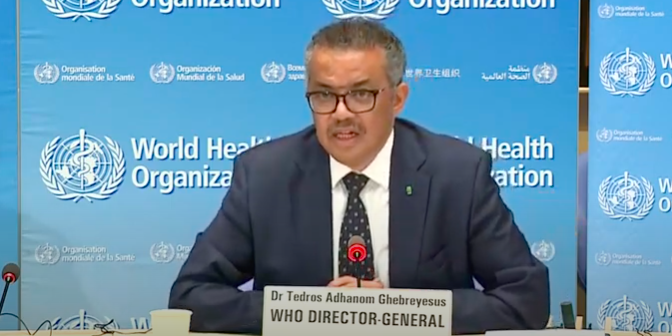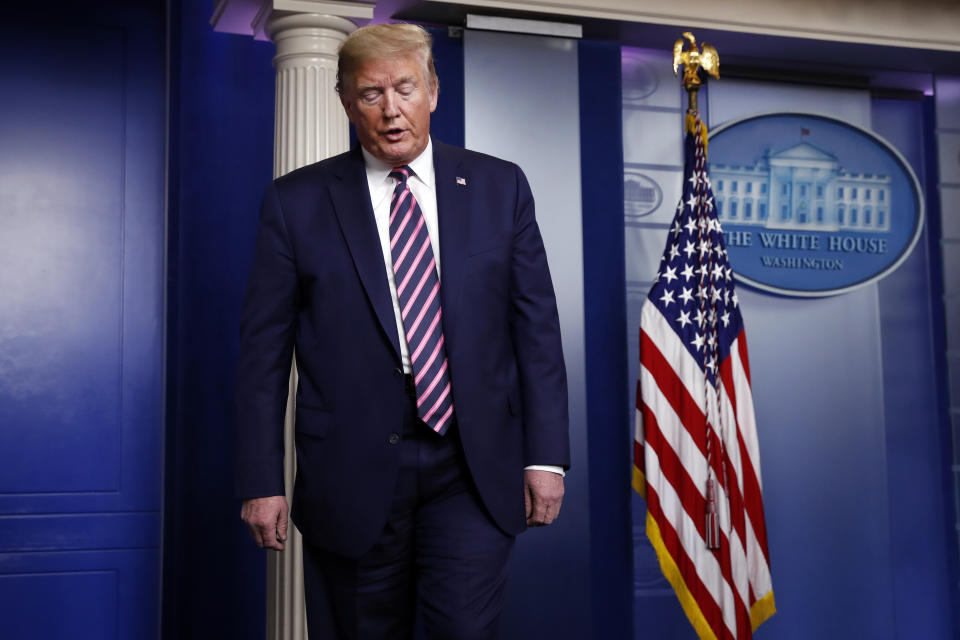Coronavirus: WHO chief says 'the world should have listened to us carefully' in January
The chief of the World Health Organization (WHO) has said countries that failed to heed its warnings have fared less successfully in their response to the global COVID-19 pandemic.
Dr Tedros Adhanom Ghebreyesus defended the UN body’s response to the outbreak, stating the WHO issued its highest alert when there were only 82 confirmed cases or coronavirus and zero deaths outside China.
The WHO has come in for some criticism in its response to the outbreak, particularly from US president Donald Trump when he called it 'China-centric' and threatened to withhold funding.
Speaking at a WHO briefing on Monday, Dr Tedros said: “We can only give advice to countries. We don’t have any mandate to force countries to implement what we advise them. On January 30, we declared the highest level of emergency, global emergency on COVID-19.
“During that time, there were only 82 cases outside China.

“No cases in Latin America, no cases in Africa. Only 10 cases in Europe. No deaths in the rest of the world. Nothing.
“The world should have listened to the WHO carefully.
“Every country could have trigged all its public health measures possible.
“We advised the whole world to implement a comprehensive public health approach – find, test, contact tracing and so on.

Read more: Britain will be a 'serious country' again after Brexit
“The countries who followed that are in a better position than others.”
Amid criticism from Trump and suggestions that Washington could review its funding for the agency, Ghebreyesus called for unity and a halt to “politicisation” of the global health crisis.
As its top donor, US contributions to the WHO in 2019 exceeded $400 million, almost double the next-largest nation donor, according to US figures, contributing nearly 15% of the budget.

Latest coronavirus news, updates and advice
Live: Follow all the latest updates from the UK and around the world
Fact-checker: The number of COVID-19 cases in your local area
6 charts and maps that explain how COVID-19 is spreading
“The WHO really blew it. For some reason, funded largely by the United States, yet very China centric,” Trump tweeted on 7 April.
The next day, he told the daily White House briefing on coronavirus that China’s payment was a small fraction of Washington’s WHO contribution, and that was “not fair at all.”
And it’s not just Trump.
David Fidler, a fellow in global health at the Council on Foreign Relations and a regular consultant to the WHO, said: “You’ve got a situation where it looks like (the) WHO doesn’t want to exercise its authority,” according to the Guardian.
Meanwhile, the Australian government has forged its own path toward stopping the virus, managing to bring down infection rates and slow the spread of the disease, without following WHO advice.
Australian taxpayers give the organisation $8.4 million a year, as well a regular top-up payments, which in 2018 reached $57 million.
Australia also condemned the WHO after it backed the reopening of China’s wet markets despite one such market in Wuhan being the likely source of COVID-19.
In early April, the WHO claimed the markets could be made safe with increased hygiene practices.
But prime minister Scott Morrison demanded transparency in understanding the origin of the disease and protection from the global threat of China's notorious open marketplaces.
“Australia and the world will be looking to organisations like the WHO to ensure lessons are learned from the devastating coronavirus outbreak,” he told The Australian.


